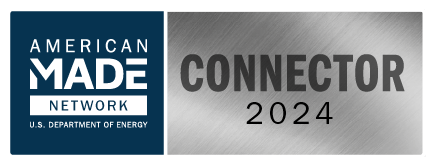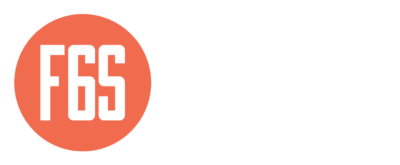The majority of start-ups fail because they don’t know who their customer is, or they are making something that there is no demand for. In the I-Corps program at the Koffman Incubator, participating teams go out into the real world and talk to potential customers, partners, and relevant stakeholders so that they can launch their idea with confidence. And they can get between $3,000 and $50,000 to do so.
As part of the larger nationwide National Science Foundation (NSF) Innovation Corps (I-Corps) Program, Binghamton University hosts the regional Innovation Binghamton I-Corps Site, providing a regional entrepreneurship training and customer discovery program. It’s designed to help students, scientists, researchers and budding entrepreneurs learn to identify existing trends, challenges, and to determine if their idea is suitable for a business or entry market. The program is supported by a diverse team of experts with backgrounds in academic R&D, business, start-up formation, and technology transfer.
With the Covid-19 pandemic pushing operations virtual, the program has seen a more diverse cohort of participants from the region and across the state. The virtual format has made the program more accessible for professors, single parents, and minority entrepreneurs and researchers, and continues to attract a diverse range of ideas from fields including clean-tech, engineering, biotech, AI, and online platforms.
Olga Petrova of Binghamton University’s Office of Entrepreneurship and Innovation Partnerships, the program’s director and one of its instructors, noted that the experience gained through the I-Corps program is vital not just to start a business, but to shape technology being developed.
“One of the things that I as a former scientist always find rewarding is when the participants learn something in the industry or in the real world that they then take back to their research,” says Petrova. “Teams can adjust how they’re doing their research to make sure that the way they’re developing their technology actually does fit in with practical applications.”
The Koffman Incubator hosts this experiential and interactive course with six virtual sessions over the course of three weeks. During this time, participating teams conduct interviews with 20 potential customers to gain insight as to where their product or idea may (or may not) fit in the market and what improvements should be made to better accommodate the customer base.
Maura Maguire of Clarkson University completed the regional I-Corps program to jumpstart the business-side of ResET Water, a company developing new algal bloom remediation technology that filters water to remove harmful blooms without chemicals. The I-Corps program helped the company identify scalability as an essential part of their product.
“Through a lot of our interviews, we learned that scalability was going to be one of the most important things about our technology,” Maguire recounted. “The prototype we had was filtering water at five or 10 gallons per minute, and just talking to the first five or 10 customers, we already knew that that was not going to be enough. So it forced us to go back to the drawing board a little bit and figure out how we could get that larger capacity.”
An essential aspect of the program is also the energetic collaboration and discussion between teams and instructors. Throughout the course mentors and teams push each other to make the leap into real-world business. Based on the curriculum for start-ups developed by Silicon Valley entrepreneur Steve Blank, teams are first led to find market fit by identifying real-world customer problems and how their idea or product would serve as a potential solution. Through interactive lectures, the course delves into how to find, retain and expand your customer base. The course also prepares teams to navigate ever-changing regulatory and legal landscapes.
“I think a lot of the value came from presenting out every week to the instructors and with the other people going through the Program, because you get a lot of great feedback,” Maguire noted. “The instructors were incredible at stepping in and saying, ‘Well have you thought about this, can I challenge you here, where can we push the boundaries a bit more?’. And we were able to do the same for our other peers in the group too.”
I-Corps instructors leverage their extensive backgrounds in marketing, manufacturing, entrepreneurship, intellectual property protection, technology commercialization, and academic and corporate R&D to support a wide variety of I-Corps teams.
Chris Thomas of the SUNY College of Environmental Science and Forestry completed the I-Corps program this past spring. His team is developing a more versatile type of biodegradable plastic made from agro-industrial waste that would break down into natural polymers and not microplastics in the environment. For Thomas, insight from members of the industry was key in identifying the most urgent market need for the product.
“The I-Corps program actually really helped us to hone what exactly this could be used for,” Thomas said. “At first we said ‘Oh, we can make cool plastics, we can make a bunch of different kinds of biodegradable plastics, we’re going to solve all the world’s plastic problems at once! Which was kind of, you know, naive.”
The I-Corps program helped Thomas’ team find their niche instead of facing the entire biodegradable plastic market. “Assessing that information from people in industry, these potential customers and other members of the value chain, we came to realize that there’s actually one specific beachhead market, one specific application that’s the most pressing for right now.”
At the end of the course, participants qualify for a $3,000 grant to continue their customer discovery efforts or to support product development. Participants can also see a significant improvement in STTR and SBIR grant eligibility.
Both Maguire’s and Thomas’ teams have applied to the national-level NSF I-Corps Teams Program to continue conducting customer discovery interviews, gain market insights, and solidify their product development strategies. The NSF I-Corps Teams Program for academic STEM-based teams offers a more rigorous version of the regional course, where teams conduct 100 interviews over 7-weeks, in order to emerge with even more polished business prospects. The NSF provides participants with a $50,000 grant.
“I really didn’t start to get any sort of clarity about what our market potential is until the last three or four interviews,” Thomas said. “We have this customer discovery log and you can kind of see it’s a little messy and all over the place, and then suddenly…we’re starting to see the same themes, we’re asking the questions that are most important for development of our technology. And so, with the National program, I would really like to continue that.”
To date, the Innovation Binghamton I-Corps program has trained 166 teams, with 23 advancing to the national-level teams program. Whether you’re a faculty member, student, inventor, researcher, early-stage start-up, associated with Binghamton University or plugging in from abroad, the NSF I-Corps program can help you push the limits of your business idea.
Learn more at: https://southerntierincubator.com/i-corps/
– Erin Zipman



